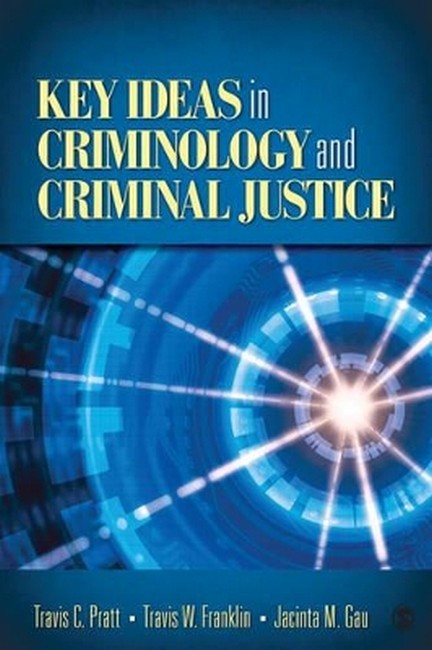Travis C. Pratt, received his Ph.D. in Criminal Justice from the University of Cincinnati. He is currently an Assistant Professor in the Department of Political Science/Criminal Justice at Washington State University (his previous appointment was as an Assistant Professor in the School of Criminal Justice at Rutgers University- Newark from 2000-2002). Pratt's research focuses on structural theories of crime/delinquency and correctional policy. His recent work on correctional policy in particular has appeared in the Corrections Management Quarterly, Crime and Delinquency, Criminal Justice Policy Review, Journal of Criminal Justice, the Journal of Offender Rehabilitation, the Prison Journal, and Justice Quarterly. Jacinta M. Gau received her Ph.D. from Washington State University in 2008 and is currently Associate Professor in the Department of Criminal Justice at the University of Central Florida, where she teaches, among other topics, doctoral-level quantitative methods and undergraduate research methods. Her research is primarily in policing, with an emphasis on police-community relations, race issues, and procedural justice and police legitimacy. Her published articles have appeared in multiple journals. She is co-author of the book Key Ideas in Criminology and Criminal Justice, published by SAGE, and co-editor of Race and Justice: An International Journal, also published by SAGE. Travis W. Franklin earned his Ph.D. in criminal justice from Washington State University in 2008 and is currently an assistant professor in the College of Criminal Justice at Sam Houston State University. His research interests focus on the effects of race and ethnicity on the processing of offenders through criminal courts, violence in correctional institutions, the causes and correlates of fear of crime, and biological predictors of crime and delinquency. His recent work has appeared in Criminal Justice and Behavior, Journal of Criminal Justice, Feminist Criminology, and Social Justice Research.
Request Academic Copy
Please copy the ISBN for submitting review copy form
Description
1. Introduction 2. Key Idea: Rational Offending and Rational Punishment The Social Context of Criminal Punishment Beccaria's Proposal Why it Caught On Influence: The Rise of the Classical School of Criminology Empirical Analyses and Critiques of Free Will, Rationality, and Deterrence 3. Key Idea: The Science of Criminal Behavior The Social Context: A Time Without Criminology The Road to Lombroso Lombroso and the Body of the Criminal The Dissemination of Lombroso's Theories Criticisms of Lombroso's Theories Lombroso's Influence 4. Key Idea: Understanding Crime and Society The Social Context of the Early Twentieth Century Social Disorganization and Anomie/Strain Theories Rejecting Individualism The Legacy of Anomie/Strain and Social Disorganization Theories 5. Key Idea: Hirschi's Social Bond/Social Control Theory The Social Context of the 1960s Social Bond/Social Control Theory The Marketing of Social Bond/Social Control Theory The Legacy of Social Bond/Social Control Theory 6. Key Idea: Rehabilitation is Dead The Martinson Report Social Context Getting the Word Out The Influence of the Martinson Report 7. Key Idea: Crime Control Through Selective Incapacitation The Context: Criminology, Criminal Justice Policy, and Society in the 1970s James Q. Wilson's Thinking About Crime Why it Caught on Selective Incapacitation's Effect on Criminal Justice and Criminology: Empirical Tests, Empirical Critiques, and Ethical Dilemmas 8. Key Idea: The Police Can Control Crime The Context of Criminology and Policing Broken Windows Theory: Revamping the Police Role How Broken Windows Theory Reached its Audience The Influence of Broken Windows Theory Empirical Tests and Critiques of Broken Windows Theory and Policing 9. Key Idea: The War on Drugs Winning the War is Easy - Just Say No! The 1980s in Context The Magic in "Just Say No" The Impact of "Just Say No" 10. Key Idea: Rehabilitation-Not Dead Yet The Principles of Risk, Need, and Responsivity Social Context Disseminating the Principles of Effective Rehabilitation The Impact of Meta-Analysis and the Principles of Effective Rehabilitation 11. Key Idea: Crime and the Life Course The Criminological Context of the Early 1990s Life Course Theories in Criminology Constructing Testable Theories Life Course Theory Catches On 12. Looking Back, Looking Forward: Conclusions Looking Back: The Glaring Omissions? The Legitimate Contenders Looking Forward: The Future of Criminology and Criminal Justice

